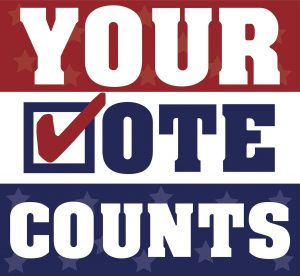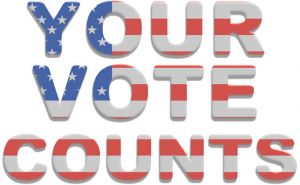Republican state lawmakers hammering out changes to Georgia’s election system have dropped controversial proposals to scrap Sunday polling hours and no-excuse mail-in voting amid pushback from Democratic leaders and voting-rights advocates.
by | Capitol Beat News Service
With the General Assembly set to adjourn the 2021 session next week, two omnibus bills moving through the House and Senate include dozens of proposed election changes that continue to irk opponents, especially tighter voter ID rules for casting absentee ballots and a ban on giving out water or food to voters waiting in line outside polling places.
But the move to repeal no-excuse absentee voting and shrink weekend hours during the three-week early voting period mark a breakthrough for opponents who viewed those proposals as chief among attempts at voter suppression, particularly targeting low-income and minority voters.
“It’s an improvement,” said the Georgia Senate Democratic Caucus on one of the two measures, both of which faced committee hearings on Monday. “But many of the provisions usurp local control.”
Republican backers frame the election changes as voter-integrity protections after the 2020 elections sparked doubts over the security of mail-in voting and identity verification. Democrats argue those issues were created out of thin air by former President Donald Trump’s allies who alleged voter fraud that election officials and federal courts consistently rejected.
In the Senate, lawmakers took up a 40-page bill sponsored by Rep. Barry Fleming, R-Harlem, that previously proposed barring county election officials from opening the polls on Sundays for early voting. That proposal has been ditched.
Instead, a separate 94-page measure moving in the House of Representatives would give counties the option to hold early voting on two different weekends ahead of an election, including mandatory open hours on Saturdays and optional hours on Sundays.
“Both Saturdays and both Sundays are possible … if locals want it,” said Fleming, who chairs the House Special Committee on Election Integrity.
The bill, sponsored by Sen. Max Burns, R-Sylvania, could face tweaks in the coming days due to concerns from election officials in Georgia’s smaller counties who typically see few voters show up to cast ballots except on Election Day, citing unnecessary costs to hold sparsely attended weekend voting.
The measure by Burns, who chairs the Senate Ethics Committee, gained approval Monday in Fleming’s committee and now heads to the full House.
Conversely, Fleming’s bill faced debate in the Senate committee that Burns chairs on Monday but did not receive a vote to advance to the full chamber.
Neither of the bills by Fleming and Burns contains a proposal to roll back the ability of Georgia voters to cast mail-in ballots without having to give a reason. No-excuse absentee voting has been in effect since 2005 under then-Gov. Sonny Perdue.
The no-excuse rollback was pitched in a third omnibus election bill by Senate Majority Leader Mike Dugan, R-Carrollton, who has signaled he will drop the repeal amid opposition from top state Republicans including Gov. Brian Kemp, Lt. Gov. Geoff Duncan and House Speaker David Ralston, R-Blue Ridge.
Dugan said Monday the repeal of no-excuse absentee voting was not added to Burns’ bill after it “seemed to cause consternation” among voters and advocacy groups.
Both bills by Burns and Fleming still contain rules changes that would require registered Georgia voters to provide the number on their driver’s license or state ID card to request and cast absentee ballots.
If they do not have those ID forms, voters instead would have to send in a copy of their passport, employee ID card, utility bill or bank statement.
The change to state voter ID laws, the most likely change to pass in the Republican-controlled legislature, has been criticized by opponents as a means to disenfranchise voters who lack driver’s licenses – though Ralston has pledged to make free state ID’s available to every Georgian.
Ralston threw his support behind Burns’ bill shortly after its passage Monday, saying the measure “makes voting more accessible and improves election security.”
“By providing for expanded weekend voting and enshrining drop boxes into law for the first time, we are making it easier to vote across our state,” Ralston said in a statement.
Beyond the ID rules, Democrats and voting-rights groups have bashed proposals still in play to curb outside groups’ ability to send voters applications for absentee ballots and give counties grant funds for elections, as well as to require that mail-in ballot drop boxes be located inside polling places.
Critics have also called for more analysis of how much counties would have to pay for implementing operational changes under the bills after outside reporting recently estimated local election boards could face tens of millions of dollars in added costs.
“There is not a fiscal note for this bill and there are many things that cost money,” said Senate Minority Leader Gloria Butler, D-Stone Mountain, on Fleming’s bill Monday. “I think there should be a fiscal note for this bill.”
The advocacy group Fair Fight, which 2018 gubernatorial candidate Stacey Abrams founded, singled out Burns’ bill that advanced Monday as a “power grab [that] takes away local control and threatens our economy.”
“Had it been law in 2020, it could have allowed the GOP to overturn the election,” Fair Fight said on Twitter. “It’s bad for democracy and bad for business.” — from Capitol Beat News Service













Leave a Comment
You must be logged in to post a comment.